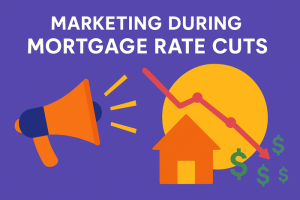Summary
This article focuses on building and maintaining successful relationships with referral partners. Learn about streamlining communication, offering value-driven incentives, and using CRM tools for collaboration. Discover how to create a win-win partnership that boosts lead generation and strengthens networks. By the end, you’ll know how to turn referral partnerships into a reliable source of business.
The loan process is all about relationships. Some of these can serve as referral partners that connect you with a wider network of potential clients.Â
Knowing how to manage that network of partners, however, can prove challenging. As such, what follows is a complete guide to referral partner management. These are some worthwhile tips and best practices for loan officers seeking to manage their referral network.
What Is a Referral Partner Management?
First, it is crucial to understand what (or who) a referral partner is. A referral partner recommends your services to someone else. They can be any individual or organization.
Referral partners might include any of the following:
- Former clients
- Other real estate professionals
- Builders and developers
- Financial planners
- Lawyers
- Other local businesses
These relationships don’t always need a formal agreement. Still, a customer relationship management (CRM) platform can help you keep track of your partners. Some even offer partner portals. In these, partners can “drop” new referrals into your borrower pipeline through an app, even when on the go.
Why Referrals Matter
Referrals matter because relationships matter. Your “brand” is more than your logo or marketing materials. It represents the reputation you carry and is often best expressed by your past clients and business associates. Â
Potential clients will respond to direct recommendations from someone they trust (word-of-mouth advertising). That’s especially true for referral partners who have specialized knowledge and experience. Determine whether your referral network contains other real estate professionals or financial planners. These authoritative voices can be strong advocates for your services.
Best Practices for Referral Partner Management
Here are some of today’s best practices for referral partner management:
Identify the Right Partners
Start by finding the right referral partners. These can be former clients, but you can also tap into the authority of other industry professionals.Â
In any case, the “right” partner depends on your niche. If you focus on first-time homebuyer programs, then you might partner with real estate companies or local builders. If you instead focus on refinancing, then you might be better off considering a partnership with a financial planner.
As for how you build a local network, you might want to attend local networking events. Don’t oversell yourself when you first meet. Focus on building a relationship with like-minded professionals. You may even discover that the best relationships happen on their own.
A CRM platform also makes it easy to add new contacts to your referral network. An added scan feature will let you scan business cards and store the contact information in an instant.Â
Create a Borrower Pipeline
A borrower pipeline can help in referral partner management, and it is more than a collection of possible clients. Mortgage lenders can create customer segments that track borrowers at every stage of their journey.
For example, a borrower might enter your pipeline by clicking an online ad or visiting your website. You might follow up with them by sending an introductory email. Then, as they move through the process, you’ll adapt your communications to guide them toward a borrowing decision.
A borrower pipeline helps you manage your referral network. It can impress potential referral partners who may be more willing to send leads your way. The leads you receive from a local referral partner may have greater value than the clicks you get from your online content.
The right CRM provider can give you the tools you need to create a pipeline and develop strategies to connect with varied customer segments.
Educate Your Referral Partners
A referral network is meaningless if your partners aren’t familiar with your services, so here’s where you need to “sell” yourself. Think about your answers to questions like these:
- What unique offerings does your lending practice provide?
- What makes you stand out from other area lenders?
- Do you offer specialized products or services?
- How many years have you been in operation?
- What are you looking for in a referral partner?
Many lenders already have pre-made marketing content. These pieces explain the lending process to potential customers. You might also consider designing some basic email and video content to explain your services to other professionals. You could even devote a section of your website to referral partners. Provide videos, charts, and more to showcase your unique value proposition.
Incentivize Your Partnership Program
Give your partners a reason to work with you. Depending on the exact focus of your lending practice, you might offer discounts or commissions. You might also serve as a referral partner for another business.
For instance, if you receive a lead from your website, you might share that lead with a real estate professional. In other words, you could share leads back and forth. It all depends on who makes the first contact.Â
By offering these incentives, you may have an easier time recruiting referral partners. It may even encourage your partners to send customers to you first instead of to a local competitor.
Connect to Your Network Through a Partner Portal
A mortgage CRM platform can help you with referral partner management. It does so by linking you through a digital portal. Most CRM platforms already have a self-service portal for borrowers, but the best offer tools for your referral partners as well.
An online portal lets your partners send you referrals through an online interface. Likewise, a mobile app allows your partners to connect to your business even when on the go.
Imagine that you have a partner in the real estate industry. After a local event, they meet several people searching for their first home. The realtor can assist in their house-hunting process, but they can also send you the names of these borrowers before they even leave the event. You can then follow up with these leads with emails or even direct phone calls.
Communicate Regularly
When you rely on online portals and other digital tools, it can be hard to maintain a personal touch. Make an effort to connect with your partners at least once per month. Regular communication improves the quality and efficiency of your referral process. Even a simple phone conversation can reduce any friction from it. It can also serve as a moment to sort out the benefits and success rate of your referral program.
Express Gratitude
Take the time to express gratitude to your valued partners. Doing so can help them feel appreciated and valued. Your gratitude may also encourage them to stick with you even when they are being bombarded by other lending companies.
If you’re feeling particularly generous, you can even honor your partners by featuring them on your website. For example, you might feature a post from a local real estate agent or financial planner, encouraging them to do the same. At the very least, you’ll solidify your relationship and cultivate a stronger partnership.
Analyze Your Data
With the right mortgage CRM, you can determine a quantitative answer to just how well your partnership is going. The right software can track the number of leads submitted by each referral partner. You can then correlate these leads to the entire borrower process to determine the exact value of each referral partner.
Your data will also enable you to identify the best practices for each referral partner. You can make recommendations to your local partners based on what’s working and what’s not.
Reviewing your data may also show you when you need to let go of certain partners. If they’re not adding value to your lending business, it may be time to look elsewhere.
Follow Up With Former Clients
Your ongoing referral network is typically made up of other professionals. Still, you should not neglect the power of your past clients, as they may prove to be a valuable source of future referrals.
You might request referrals directly from your clients, though not everyone has someone in mind right off the bat. Instead, it may be better to send them a follow-up a month to a year after they secure their loan.
Doing so keeps your company at the forefront of their minds. In the time since they secured their loan, your former clients’ friends or family members may also be shopping for a home or refinancing. If you stay in touch with your clients, they may be more willing to recommend your company to those people.
A mortgage CRM system makes it easier to store data on previous clients. It can even send automated emails and e-cards to celebrate loan anniversaries or other occasions.
Bonus Tip: The Value of a Mortgage CRM Platform
The best way to manage your referral partners is with a mortgage CRM system. The BNTouch platform offers many advanced features that assist with marketing, team collaboration, and other aspects.
Partners will especially love its online portal because it makes it easier to submit referrals. The platform’s advanced analytics will help you keep track of the return on your investment. To see all of these features in action, contact BNTouch to schedule a demo.
Key Takeaways
- Streamline Communication with CRMs
Utilizing CRM tools ensures smoother collaboration and helps track interactions with referral partners.
- Offer Value to Strengthen Relationships
Providing educational resources or co-marketing opportunities encourages stronger partnerships.
- Consistently Nurture Partnerships
Regular check-ins and value-driven follow-ups keep referral connections active and productive.
Commonly Asked Questions
- What tools can help manage referral partnerships effectively?
CRMs streamline communication, track activities, and organize relationships efficiently.
- How can lenders provide value to referral partners?
By offering educational resources, co-marketing opportunities, and proactive support.
- Why are consistent follow-ups essential in managing referrals?
They keep the relationship active and productive, ensuring ongoing collaboration.
- What are key strategies to strengthen partnerships with referral partners?
Regular communication, value-driven interactions, and shared goals foster strong bonds.








